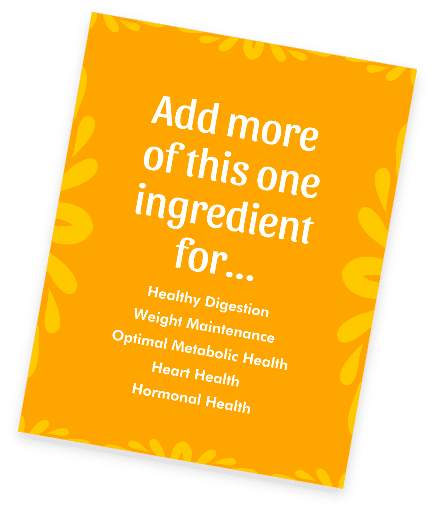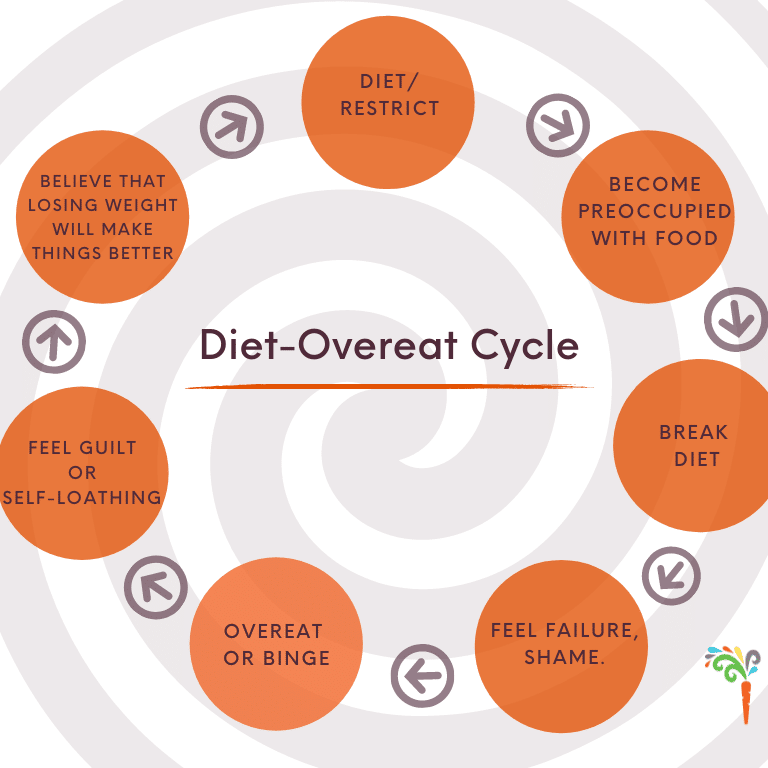Non-Sugar Sweeteners, your weight and your health – what people in midlife need to know
Are you one of the thousands of midlife people who uses non-sugar sweeteners in your diet? If you are a diet pop drinker, a protein-bar eater or a sugar-free crystals drinker, you might be very curious about a new report.
A new report and guideline from the World Health Organization (WHO) on non-sugar sweeteners recommend against the use of non-sugar sweeteners to manage body weight or to reduce the risk of “non-communicable diseases”.
This blog posts describes:
- what are non-sugar sweeteners
- the results of the WHO systematic review and meta-analysis
- interpretation of the results
- tips to help reduce the intake of non-sugar sweeteners.
What are non-sugar sweeteners?
Also known as sugar substitutes or artificial sweeteners, non-sugar sweeteners, are substances that provide sweetness but contain fewer or no calories. These artificial and natural sweeteners have been created and isolated as an alternative to sugars. In Canada, sugar substitutes are subject to control under the Food and Drugs Act and regulations.
Non-sugar sweeteners are used widely in our food supply as ingredients in pre-packaged foods and beverages, and are added to foods and beverages by consumers. Examples of non-sugar sweeteners include: Acesulfame K, advantame, aspartame, cylamate, neotame, saccharin, steviol glycosides (these are responsible for the sweet taste of stevia), sucralose.
In recent years, there has been growing interest in non-sugar sweeteners as alternatives to traditional sugar. With chronic health concerns, like diabetes, insulin resistance, cancer and weight management, women in midlife are interested in finding healthier options for their diet.
Because non-sugar sweeteners impart sweet taste without calories, they have been used to help add in sweetness to our food and beverages without sugar and the associated increase in calories, allowing us consumers to have our proverbial cake and eating it too.
Prior to being introduced in our food supply, non-sugar sweeteners are tested for safety and toxicity by Health Canada. However, there have been some growing concerns about the long-term use of non-sugar sweeteners at levels below the acceptable daily intake level. As a result, the World Health Organization (WHO) did a large study, described next.
The WHO study on non-sugar sweeteners
The World Health Organization did a large review and analysis (called a systematic review and meta-analysis) on the intake of non-sugar sweeteners and their relationship to several health outcomes of interest in adults and children.
WHO research findings suggest that:
- In the short-term, non-sugar sweetener use may lead to small reductions in adiposity (fat tissue).
- non-sugar sweeteners do not yield any long-term benefit in reducing body fat in adults or children.
- long-term use of non-sugar sweeteners may have some surprising effects, including increased body weight, as well as increased risk of type 2 diabetes, cardiovascular disease and all-cause mortality, although the data is not yet conclusive.
- For pregnant women, that higher non-sugar sweetener intake is associated with increased risk of preterm birth, and potentially adiposity in offspring.
The results of this review have informed their latest statement which was to recommend against the use of non-sugar sweeteners to manage body weight or to reduce the risk of “non-communicable diseases”.
The report encourages people to find other ways to reduce their free sugar intake. Instead of non-sugar sweeteners, they suggest consuming foods with naturally occurring sugars, such as fruit or unsweetened food and drinks.
** The WHO recommendation on non-sugar sweeteners applies to all people, except those with pre-existing diabetes. It applies to all made and naturally occurring non-nutritive sweeteners, except things like toothpaste, medications, and sugar alcohols.
Image source: World Health Organization. Health effects of the use of non-sugar sweeteners: a systematic review and meta-analysis. April 2023, p9 of 210.
Non-sugar sweeteners – the wolf in sheep’s pyjamas?
Non-sugar sweeteners, when consumed longer term, may not be as benign to our health as we once believed. Emerging research from around the world has found that, while in the short-term, they may help reduce our overall sugar intake, there may be subtle associations between non-sugar sweeteners and risk for chronic health concerns and mortality. We are not exactly sure about the long-term behaviour of these non-sugar sweeteners and their true impact on our health.
While they give us the sweetness that we prefer without the associated calories, non-sugar sweeteners are not essential dietary factors. They have no nutritional value. And they may have subtle impacts on our health from long-term use.
So now what – no more diet pop?
I don’t know about you – but sometimes I enjoy a cold can of caffeine-free diet pepsi when I am looking for a nice “bite” (as my mom calls it) in the afternoon. I also have other sources of non-sugar sweetener intake from flavouring my water with sugar-free drops or sugar-free drink crystals, as well as from the occasional protein powder I might use.
Build awareness of how non-sugar sweeteners show up in your diet
The above WHO report invites us consumers to become aware of our current intake of non-sugar sweeteners through packaged foods, meal replacements, protein bars and beverages sweetened with non-sugar sweeteners, and how we use them in our dietary intake pattern. Pay attention to food and beverages marketed as sugar free or no-sugar added. These are often artificially sweetened.
Are non-sugar sweeteners displacing other nutrient-rich options?
We consumers can also examine the impact these foods are having on our nutritional intake via displacement of other more nutrient-rich options. It may be easier to grab a protein bar in the afternoon because it is quick and easy. We could also grab a piece of fruit + small handful of nuts to boost our energy, while also giving us protein, fiber and other vitamins and minerals.
Are non-sugar sweeteners sustaining our preference for sweet-tasting foods?
We can also look at how using non-sugar sweeteners sustains our preference for sweet-tasting foods. Whether sweetened with added free sugar or with non-sugar sweeteners, both additions to our diets perpetuate our preference for sweet-tasting foods as part of an overall dietary pattern. According to the WHO, “people should reduce the sweetness of their diet overall, starting early in life, to improve their health.”
We consumers can look for other ways to replace free sugars intake, such as consuming food with naturally occurring sugars like fruit or unsweetened food and beverages.
Are non-sugar sweeteners keeping us hooked on processed foods and beverages?
Non-sugar sweeteners are found mostly in processed foods and beverages, all of which should be limited for optimal midlife health. Shifting away from processed foods and beverages are steps that all of us consumers can take toward improving our health.
Everything in moderation. And moderation in moderation
Non-sugar sweeteners are one aspect of our dietary intake, which contribute to our pattern of healthful eating. There are many aspects of our lifestyle which impact our risk for chronic disease and chronic health concerns.
Other aspects of our lifestyle with known impact on our total health include:
- physical activity
- managing stress
- forming and maintaining relationships
- improving our sleep quantity and quality
- avoiding risky substances.
To best manage our health, it is important to find a healthful, sustainable lifestyle that is personally acceptable and respectful of our total, holistic health. Our holistic health includes not just physical health, but also our emotional health, mental health, relational health, environmental health and existential health.
8 Tips to help reduce intake of non-sugar sweeteners:
-
Be mindful of food labels
Read food labels carefully to identify products that contain non-nutritive sweeteners. Common ones include aspartame, saccharin, sucralose, and stevia. Look for alternatives that do not contain these sweeteners.
-
Choose whole, unprocessed foods as the foundation of your dietary pattern
Focus on whole foods such as fruits, vegetables, whole grains, lean proteins. These foods generally do not contain non-nutritive sweeteners nor added free sugar.
-
Reduce sweet-tasting beverages
Many artificially sweetened drinks contain non-nutritive sweeteners. Gradually decrease your consumption of sugary drinks, diet sodas, sports drinks, and non-sugar sweetened flavored waters. Opt for water, herbal tea, or unsweetened beverages instead.
Add fruits and herbs to your hot or cold water for flavour. Here are some ideas to try:
- blackberries + mint
- raspberries + cucumber
- strawberries + fresh basil
- chopped apples + a cinnamon stick
- pear slices + a drop of vanilla extract
To release the most flavour:
- crush the berries
- chop or tear herbs
- cut fruit into cubes
If you like some fizz in your drink, try carbonated water.
-
Limit processed and packaged foods
Processed and packaged foods often contain non-nutritive sweeteners to enhance flavour. By reducing your intake of these foods, you’ll naturally reduce your consumption of these sweeteners. Instead, choose fresh, whole foods and prepare meals at home as much as possible.
-
Experiment with natural sweeteners
If you enjoy a touch of sweetness, try natural alternatives like fruit, cinnamon, vanilla extract, or small amounts of natural sweeteners such as honey or maple syrup. These options provide sweetness with additional nutrients.
-
Train your taste buds
Gradually reduce your reliance on intense sweetness. Over time, your taste buds will adapt, and you’ll become more sensitive to natural sweetness found in whole foods.
-
Cook and prep more at home
Preparing meals at home allows you to have control over the ingredients used. By cooking your own meals, you can reduce your intake of non-nutritive sweeteners.
-
Seek support
If you find it challenging to reduce your consumption of non-nutritive sweeteners, consider seeking support from a registered dietitian or nutritionist. They can provide personalized guidance and help you develop a healthier eating plan.
Gradually reducing your intake of non-nutritive sweeteners can lead to long-term sustainable habits that support a healthful diet.
References consulted in this blog post:
- World Health Organization. WHO advises not to use non-sugar sweeteners for weight control in newly released guideline. May 15, 2023. https://www.who.int/news/item/15-05-2023-who-advises-not-to-use-non-sugar-sweeteners-for-weight-control-in-newly-released-guideline
- World Health Organization. Health effects of the non-sugar sweeteners: a systematic review and meta-analysis. April 2022. https://www.who.int/publications/i/item/9789240046429
- World Health Organization. Use of non-sugar sweeteners: WHO guideline. May 15, 2023. https://www.who.int/publications/i/item/9789240073616
- Health Canada. Sugar Substitutes. Jan 30, 2023. https://www.canada.ca/en/health-canada/services/food-nutrition/food-safety/food-additives/sugar-substitutes.html#
- Health Canada. Make water your drink of choice. Jan 26, 2021. https://food-guide.canada.ca/en/healthy-eating-recommendations/make-water-your-drink-of-choice/
- Medscape. WHO advises against non-sugar sweeteners for weight control. June 9, 2023. https://www.medscape.com/viewarticle/993009?ecd=WNL_mdpls_230613_mscpedit_publ_etid5524723&uac=81509PN&spon=42&impID=5524723
4 Comments
Leave a Comment


Welcome to the Energize Nutrition blog, where we share evidence-based nutrition content, designed to empower people’s midlife. Take a look around to find information on feeling your best.
If you need more individualized support, reach out to set up a free discovery call with Kristyn Hall.

Battling chronic hunger, poor energy, or inflammation? Discover what this powerful ingredient is and why it might be the solution!











I have known this about aspartame and sucralose and others, but is Stevia, a plant/herb really included in all of these? The fact that it’s processed into water flavouring syrup, is that making it one of these harmful sweeteners? Would it be better to use the real stevia plant leaves dropped into a carbonated for a touch of sweetness or is it fully included in all of the other chemical sweeteners?
Hello Andrea, if you look at the WHO report, they included studies that reported use of non-sugar sweeteners (NSS) within the Acceptable Daily Intake (ADI) as established by the Joint FAO/WHO Expert Committee on Food Additives (JECFA): Acesulfame K, advantame, aspartame, cylamate, neotame, saccharin, steviol glycosides (these are responsible for the sweet taste of stevia), sucralose. They excluded studies in which NSS intake explicitly exceeded the ADI. Their review did not include sugar alcohols or modified sweeteners.
The research is looking at patterns of how substances are associated with different outcomes. I am not aware of research that specifically looks at what the longer-term impact of using a stevia plant leaf into a carbonated for a touch of sweetness. The research found that, in the short term, the above-outlined sweeteners appeared safe, but that in the longer term, they may behave differently. When does something transition from short- to long-term use, and at what point do we notice a change in outcome? This is part of what makes nutritional epidemiology complex.
So, my review of the research would say that yes, it includes stevia. Whether how the research examined the use of steviol glycosides the way you specifically use them in your dietary pattern is not known. Somehow, I doubt it but I am not sure.
When we look a toxicology, we are interested in exposure (how much and how often), which the research shows with NSS, this varies. I also, in the post, provided some context of other factors to keep in mind, and ways to assess what your use is in your dietary approach.
Have a read of their consumer news release (it is about 1 page): https://www.who.int/news/item/15-05-2023-who-advises-not-to-use-non-sugar-sweeteners-for-weight-control-in-newly-released-guideline
The links to the actual reports is also listed in the post if you want to dig further into this.
Kristyn
Thanks for the breakdown. I have known for a long time that my dependency on water crystals is contrary to optimal health. This report solidifies it. Time to adult and start making better choices. Will feel better if the long run I am sure!
Thanks
I hear you and I feel it too. Even working toward dialing down the use of NSS is a step in the right direction.